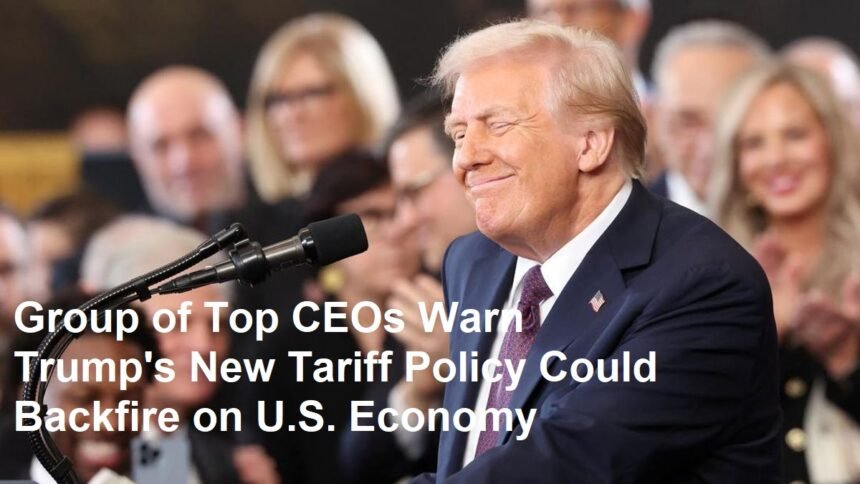A coalition of CEOs from some of America’s largest companies has issued a stark warning that President Donald Trump’s new tariff policy may ultimately prove to be self-defeating for the nation’s economy. In a joint statement released earlier today, the group cautioned that the measures, intended to protect domestic industries by imposing higher tariffs on imported goods, risk triggering unintended consequences that could harm the very businesses they aim to safeguard.
The CEOs, representing a diverse range of sectors—from manufacturing and technology to retail and energy—stressed that while protecting American jobs and industries remains a priority, the new tariffs could have adverse ripple effects throughout the economy. “We appreciate the need to address trade imbalances and unfair practices,” one CEO commented, “but protectionist measures must be carefully calibrated to avoid isolating American businesses from vital global markets.” They warned that any aggressive move to impose tariffs could lead to retaliatory actions by trading partners, thereby disrupting global supply chains and increasing costs for consumers and companies alike.
According to the group, the immediate impact of the tariffs could be a surge in costs for imported components and raw materials that many domestic companies depend on. This, they explained, may force manufacturers to raise prices on finished goods, reducing their competitiveness in both domestic and international markets. “When costs rise unexpectedly, it’s not just our bottom line that suffers—there’s a broader economic impact that can lead to decreased consumer spending and slower growth overall,” noted another industry leader.
The CEOs also highlighted that the current global economic environment is already fraught with uncertainties. Recent fluctuations in energy prices, ongoing supply chain challenges, and the aftereffects of previous trade disputes have left many sectors vulnerable. In this context, adding another layer of protectionist policy could exacerbate existing issues. They called for a more strategic approach that prioritizes dialogue and cooperation over unilateral measures, urging policymakers to work closely with industry experts and international partners to seek balanced solutions.
Critics of the new tariff policy argue that while the intent is to shield American industries from unfair foreign competition, the approach risks igniting a full-scale trade war. Several major trading partners have already hinted at the possibility of countermeasures that could further complicate the global trade landscape. “There is a very real risk that our allies and trading partners will respond in kind,” said one CEO. “Such a tit-for-tat escalation could ultimately erode the competitive advantages that our companies have built over decades of open market engagement.”
In addition to concerns over immediate economic disruptions, the CEOs warned of the long-term strategic risks involved. They noted that sustained trade barriers might discourage foreign investment, a key driver of innovation and job creation in the United States. “Innovation thrives on collaboration and competition on a global scale,” one executive explained. “If we start closing ourselves off from international markets, we may inadvertently stifle the innovation that has long been a hallmark of our economy.”
The group’s statement underscored the importance of maintaining a stable and predictable business environment. They called on the Trump administration to reconsider the timing and scope of the tariff implementation, suggesting that more comprehensive studies be undertaken to assess the full economic implications. “We need policies that bolster our economy without jeopardizing the interconnected systems that make growth possible,” the statement read. “A measured, multilateral approach is critical to ensuring that we remain competitive in a rapidly evolving global market.”
As debates continue in Washington over the best path forward, these warnings from leading business figures serve as a reminder that economic policies must be both ambitious and balanced. While the goal of protecting American jobs is widely shared, the consensus among these CEOs is that any policy misstep could ultimately undermine that very objective, setting the stage for economic challenges that may be difficult to overcome.












